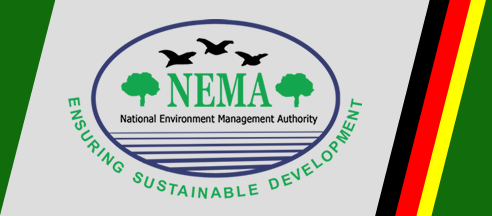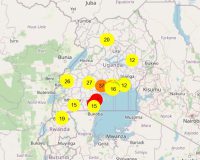By Evelyn Katasi
Every February 2nd, nations worldwide join hands in celebrating World Wetlands Day, a momentous occasion dedicated to recognizing the pivotal role that wetlands play in sustaining our planet’s health. This annual event marks the anniversary of the adoption of the Ramsar Convention on Wetlands in 1971, an international treaty designed to protect these invaluable ecosystems. This year, the global theme revolves around the interconnectedness of wetlands and human well-being, with national celebrations taking place in Gulu City.
As we commemorate World Wetlands Day, it’s crucial to delve into the history of wetlands and highlight their immense importance for the environment and humanity. Wetlands, encompassing marshes, swamps, bogs, and estuaries, have evolved over millions of years into complex ecosystems supporting a diverse array of plant and animal life. Historically viewed as wastelands subject to drainage, wetlands gained global recognition for their ecological significance, leading to the establishment of the Ramsar Convention.
Named after the Iranian city where it was adopted, the Ramsar Convention is an international treaty committed to the conservation and sustainable use of wetlands. With support from over 170 countries since its inception in 1971, the convention underscores the global dedication to preserving these vital ecosystems. Emphasizing the importance of wetlands in maintaining biodiversity, regulating water flow, and providing essential ecosystem services, the treaty plays a crucial role in safeguarding our planet’s health.
Often referred to as the “kidneys of the Earth,” wetlands possess a natural ability to filter and purify water. Acting as sponges, they absorb and store excess rainfall, reducing the risk of downstream flooding. Moreover, wetlands serve as crucial habitats for a diverse range of plant and animal species, contributing to biodiversity conservation and ensuring the survival of numerous rare or endangered species.
Wetlands play a pivotal role in mitigating climate change by acting as significant carbon sinks, sequestering large amounts of carbon dioxide and other greenhouse gases. The draining or degradation of wetlands releases stored carbon into the atmosphere, contributing to global warming. Protecting wetlands is thus essential for combating climate change and promoting environmental resilience.
Uganda’s Commitment to Wetland Conservation

In Uganda wetland coverage reduced from approximately 13% of the country’s total land surface to about 8 %. If nothing is done to halt this trend the country will lose its entire wetland coverage sooner than later.
In a significant move to protect Uganda’s precious wetlands, the National Environment Management Authority (NEMA) has taken decisive action by suspending the consideration and issuance of project approvals within these critical ecosystems since September 2, 2021. This proactive response addresses the escalating encroachment on wetlands, safeguarding their ecological integrity. The government’s ongoing gazettement process aims to officially recognize and designate wetlands across Uganda, aligning with regulations dedicated to their preservation and responsible management.
World Wetlands Day serves as a reminder of the interconnectedness of all living beings and the planet we call home. As we celebrate this day, let us renew our commitment to the preservation of wetlands, recognizing their vital role in maintaining biodiversity, regulating water resources, and mitigating the impacts of climate change. Through embracing sustainable practices and promoting awareness, we can ensure that these essential ecosystems continue to thrive for generations to come.





